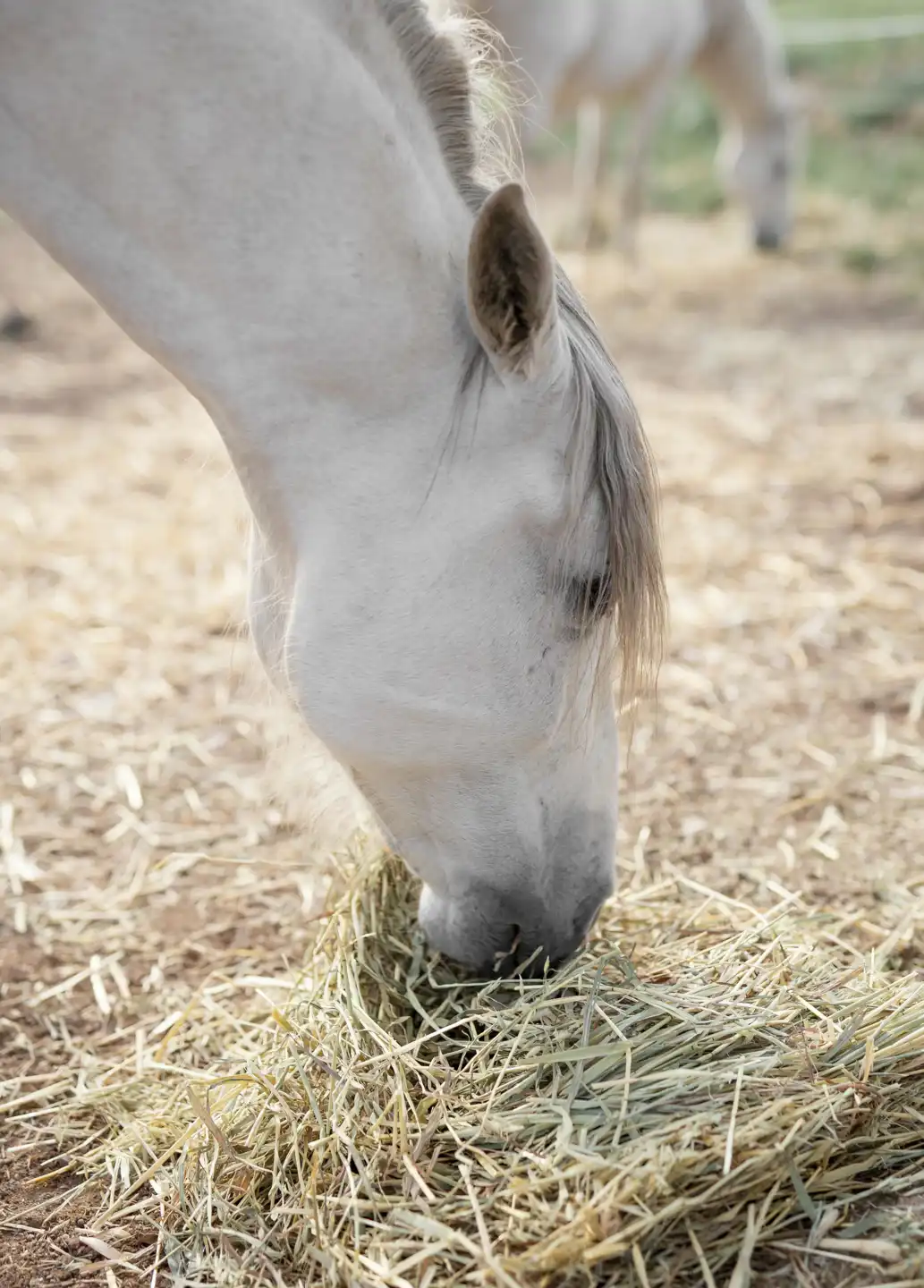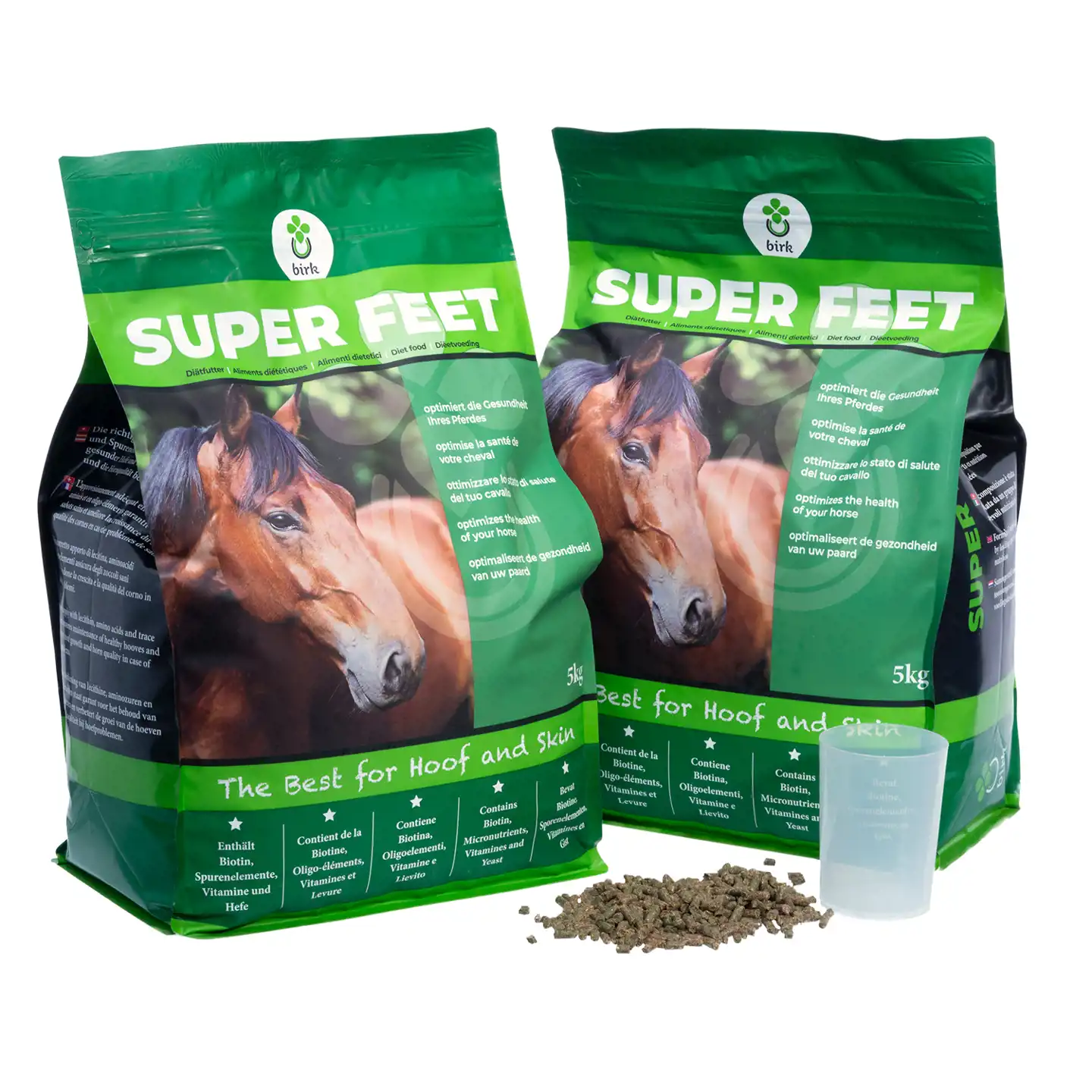Proteins in horse feed:
Everything you need to know
Why are proteins essential for horses?
Proteins play a key role in the horse's organism: they contribute to muscle growth, tissue repair and the proper functioning of the metabolism. But how much protein does a horse really need? And which foods are richest in protein?The role of proteins in the horse's body
Proteins are made up of amino acids, essential for muscle formation, enzymes, hormones and other vital structures. Some amino acids are produced naturally by the body, but others - also known as essential amino acids - must be supplied by the diet.Essential amino acids for horses
Among the amino acids essential to a horse's health are:
- Lysine - promotes muscle development
- Methionine - strengthens hoof structure
- Cysteine - supports the immune system
- Tryptophan - helps manage stress and behavior
These amino acids are found in feeds such as alfalfa, linseed and soya.
How much protein does a horse need?
Protein requirements vary according to the horse's age, activity and physiological condition. Here are some guidelines:
- Adult horse at rest (600 kg): approx. 520 g protein/day
- Sport horse in intensive work up to 1164 g protein/day
- Pregnant mare (last trimester): approx. 850 g protein/day
- Lactating mare (1st month): approx. 1593 g protein/day
Tip: Have your forage analyzed to adjust protein intakes according to your horse's real needs.
Which foods are rich in protein?
The main source of protein should come from forage, which should be well-balanced between grasses, legumes and various plants.
- High protein content: alfalfa, linseed, soya
- Medium protein content: Oats, nutrient-rich meadow hay
- Low protein content: Straw, low-fertilizer meadow hay
Optimize your horse's nutrition, health and performance with Birk Super Feet & Birk Super Strength supplements!
A formula enriched with essential vitamins and minerals for strong hooves, balanced metabolism and enhanced immunity. Ideal for horses with reduced protein requirements but needing optimal nutriment intake.
Beware of protein excess!
Too much protein can overload the liver and kidneys, and lead to problems such as laminitis, fork rot and foot cancer. This is why it's crucial to adapt the ration to your horse's real needs.
How to detect a protein deficiency or excess?
Signs of protein deficiency:
- Muscle loss
- Poor coat condition
- Slow healing
Signs of excess protein:
- Strong-smelling urine
- Excessive sweating
- Hoof problems
- Green hay is the most desirable as it is rich in nutrients and free from mold
- Yellow hay may have lost nutrients and may contain mold, which can cause digestive and respiratory issues
- Brown hay is often of poor quality and may contain mold, making it unsafe for horses
The choice of hay should be adapted to the individual needs of horses, considering factors such as plant type, maturity stage, and the presence of contaminants.
Finding the right balance is key!
Proteins are essential to a horse's health, but it's important to adjust them precisely. A forage analysis helps optimize feeding and ensure appropriate nutritional coverage.
Have your hay analyzed by the FiBL Research Institute or UFAG Laboratories and find the optimal feed for your horse - for strong hooves and healthy digestion!


